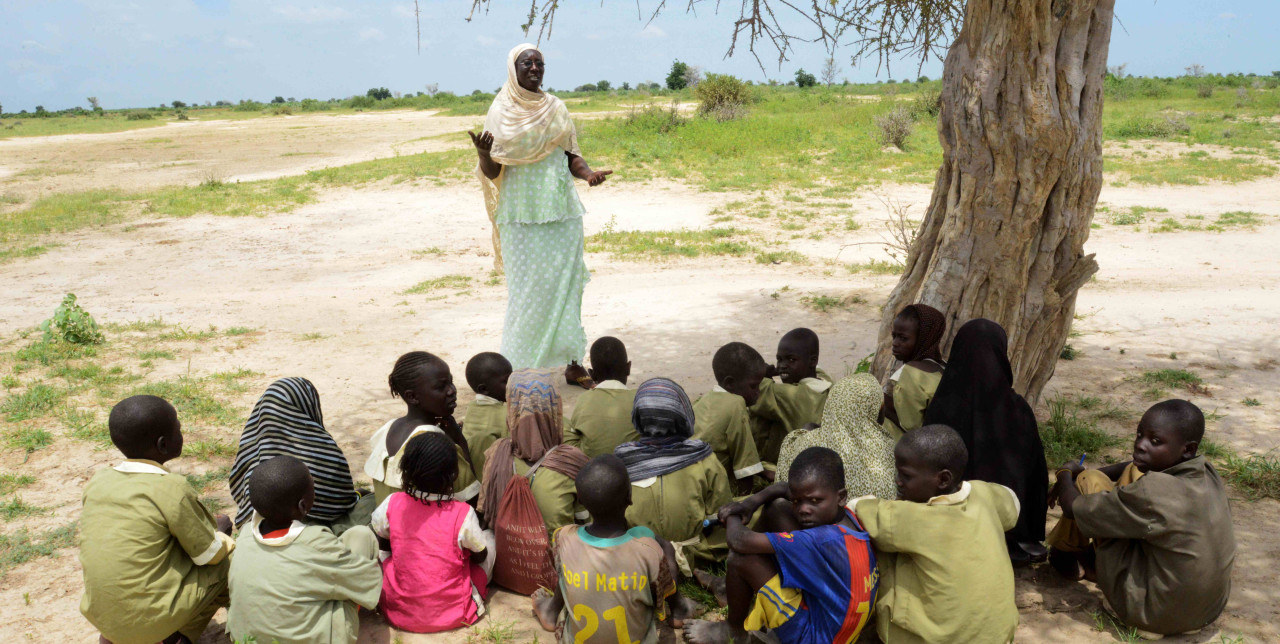07-11-2017 | di COOPI
The challenge of women's education in Cameroon
In the far north of Cameroon, girls’ access to education is still a problem that needs solving. The economic obstacles, made worse by the actions of Boko Haram, are combined with a conviction that is deep-rooted in local culture, whereby only boys have the right to continue studying and girls are oriented from an early age towards domestic life and engaged to be married instead. Gender inequality is also reflected in the common failure to register the birth of girls at the register office, due to the distance between rural villages and towns.
As part of the "Riedupace" project, funded by the AICS (the Italian Agency for Development Cooperation), COOPI is running a number of campaigns to raise awareness of the importance of education for both boys and girls. This work is based on direct dialogue with families by organising events in schools, providing them with a chance to ascertain the benefits enjoyed by young students both in terms of their education and the complementary services provided (including food and, for those most in need, free educational materials).
Compared to what is stated in the UN’s fourth sustainable development goal, which aims to achieve ‘equitable and inclusive’ primary and secondary education for boys and girls by 2030, it has become clear that the 30 schools involved in the project will require a prolonged and patient effort. In a recent interview published in the online magazine Vita, Sylvestre Woumbondi, the project’s activities supervisor, states that ‘girls account for approximately 50% of the students in the first classes up until the ages of nine or ten, then that figure falls to 30% until they only account for 10% of the higher classes of adolescent pupils.’
Nevertheless, only five months after its launch, the results seem encouraging. According to Vincenzo Altomare, the project’s director, local authorities ‘realise the value and meaning of our work and this should not be taken for granted’: a good omen for improving conditions in future. Among the families benefitting from the project, there has already been an increase in the number of children registered at the register office, without which access to school exams – and therefore any future educational qualifications – is impossible.




 Cameroon
Cameroon